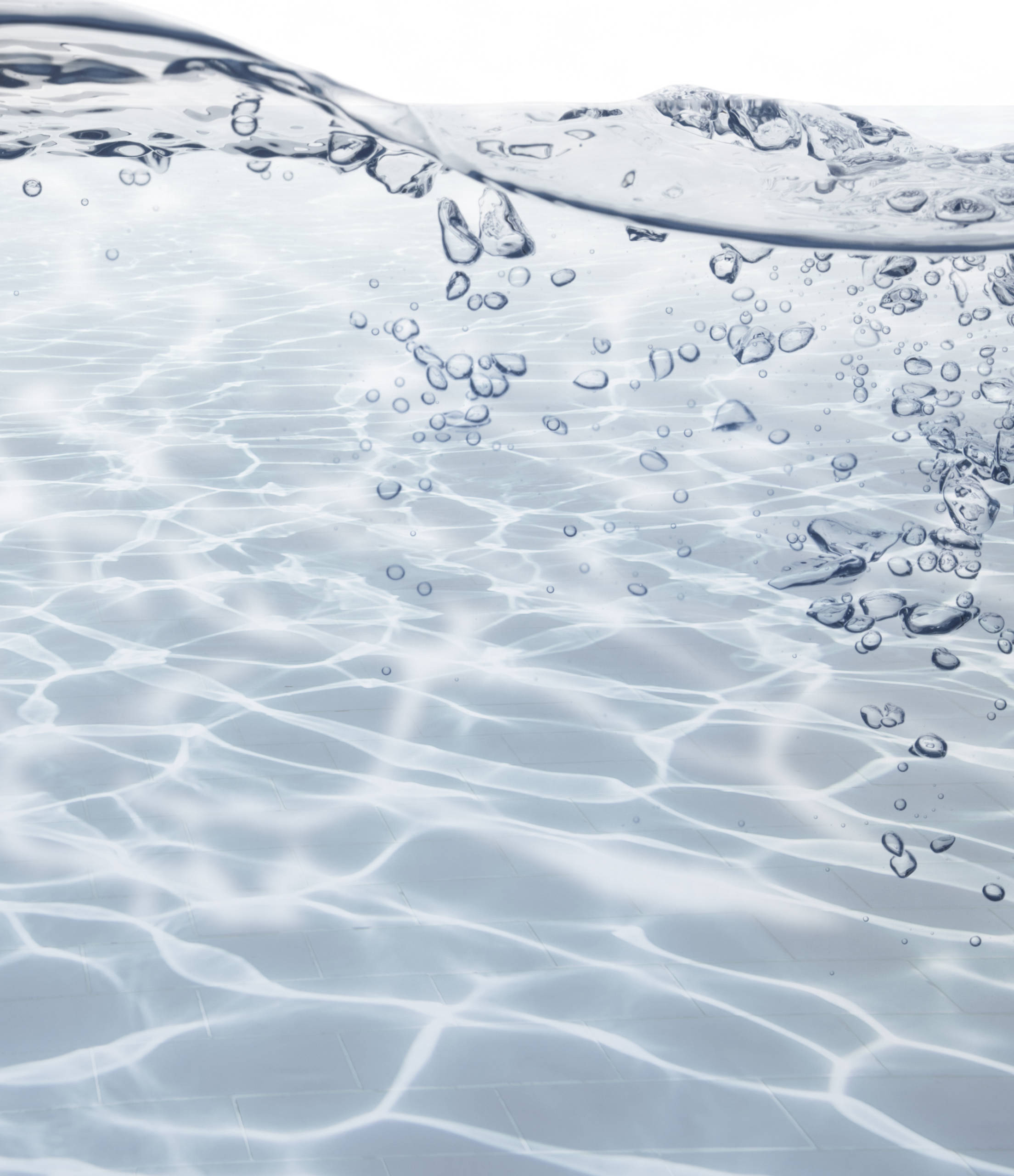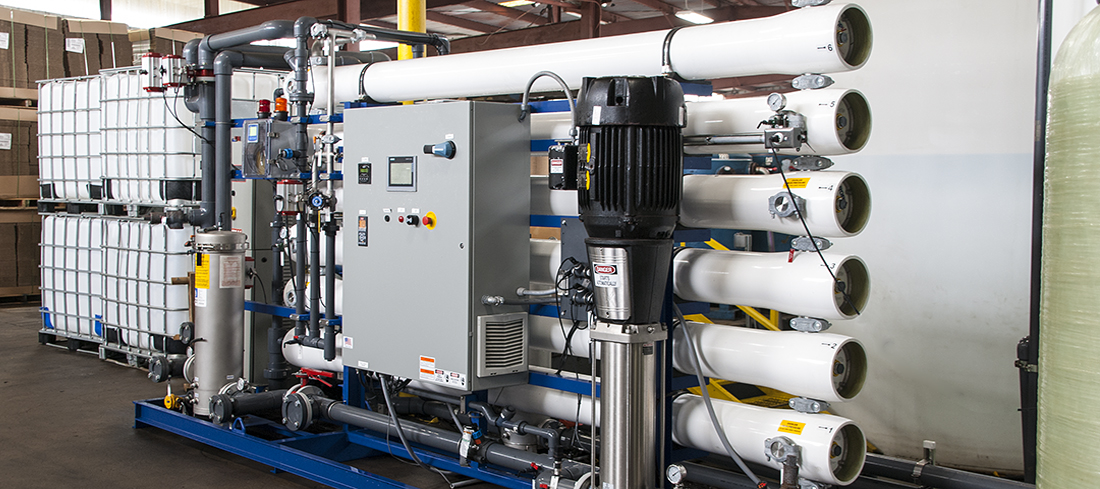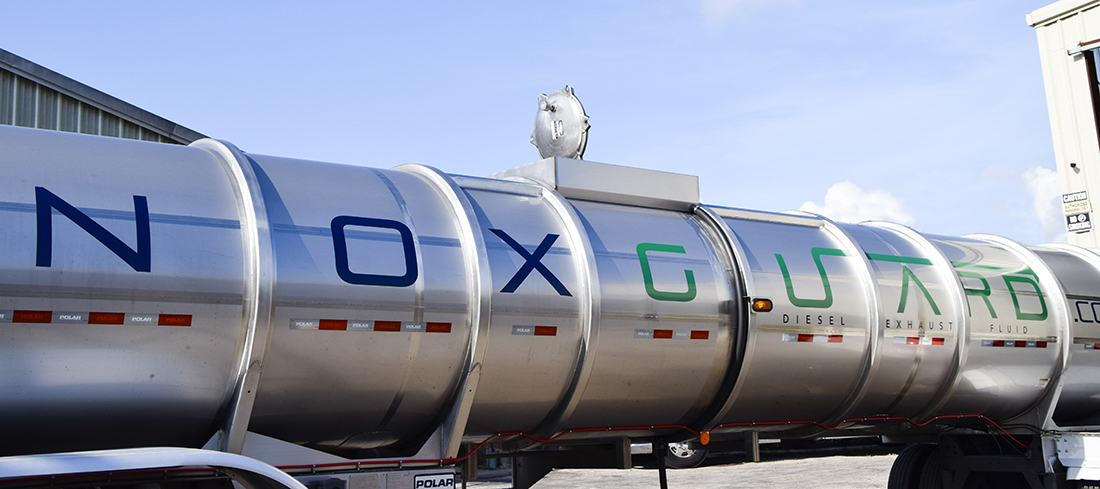Diesel Exhaust Fluid - FAQ
- What is Diesel Exhaust Fluid (DEF)?
- DEF is the reactant necessary for the functionality of the SCR system. It is a carefully blended aqueous urea solution of 32.5% high purity urea and 67.5% DI water.
- What is urea?
- Urea is a compound of nitrogen that turns to ammonia when heated. Urea has important uses as a fertilizer and feed supplement, as well as a starting material for the manufacture of plastics and drugs. It is a colorless, crystalline substance that melts at 132.7° C (271° F) and decomposes before boiling.
- How does DEF work within a SCR system?
- The SCR technology treats gas exhaust downstream of the engine. Small quantities of DEF are injected into the exhaust stream and when mixed with the NOx, it changes into harmless nitrogen and water.
- How will I know that the DEF product I purchase will work?
- The DEF you purchase should display the American Petroleum Institute (API) certification, the International Organization for Standardization ISO 22241-1, & meet AUS – 32 specifications. This will ensure the proper purity and concentration (32.5%) of urea. Looking for more information, please go to visit www.iso.org.
- What is the chemical process of producing urea and what is the energy balance of this process?
- The production of urea involves the raw materials of ammonia and carbon dioxide. Two reactions take place in the formation of urea. The first is an exothermic (heat releasing) reaction in which ammonia + carbon dioxide creates ammonium carbamate. The second reaction is an endothermic (absorbing energy within heat) reaction in which ammonium carbamate is converted into water + urea.
- Is the 32.5% urea solution critical?
- Yes, The 32.5% urea concentration is the ideal solution as it provides the lowest freeze point. It is our understanding that all SCR systems will be calibrated to the 32.5% concentration.
- When will DEF freeze?
- This 32.5% solution will begin to freeze at 12 deg F (-11 deg C). At 32.5%, both the urea and water will freeze at the same rate, ensuring that as it thaws, the fluid does not become diluted, or over concentrated. Unthawing will not cause harm to the product.
- How much does DEF weigh?
- Approximately 9 pounds per gallon.
- How do I keep the DEF from freezing in the tank of a Truck?
- SCR systems are designed to provide heating for the DEF tank and supply lines. If DEF freezes when the vehicle is shut down, start up and normal operation of the vehicle will not be inhibited. The SCR heating system is designed to quickly return the DEF to liquid form.
- Are there special storage requirements for DEF?
- DEF should be stored in a cool, dry, well-ventilated area, out of direct sunlight. While the optimum storage temperature is up to 77 deg F (25 deg C), temporary exposure to higher temperatures has little to no impact on the quality of DEF.
- What is the shelf life of DEF?
- The shelf life of DEF is directly related to the ambient storage temperature. DEF will degrade over time depending on temperature and exposure to sunlight. If stored between 10 and 90 deg F, shelf life will easily be one year. However, if the maximum temperature does not exceed approximately 75 deg F for an extended period of time, the shelf life will be two years.
- How can I determine date of manufacture for my DEF?
- DEF packaging will have a date code on the product. The date code will give you the date it was manufactured on. The first digit of the date code represents the batch number and the next 6 digits reflect the date that the batch was made and filled.
- What impact will exposure to high temperatures for an extended period of time have on DEF?
- While DEF exposure to constant, high storage temperature may have some impact on shelf life, this should not be a concern. Testing in hot climates has been conducted and has returned results concluding that DEF stored at a constant temperature of 86 deg F has a shelf life of 6 months.
- Should I be concerned about handling DEF?
- No. DEF is a nontoxic, nonpolluting, non-hazardous and nonflammable solution. It is stable, colorless, and meets accepted international standards for purity and composition. DEF is safe to handle and store and poses no serious risk to humans, animals, equipment or the environment when handled properly. MSDS is available upon request.
- What should I do if I spill DEF?
- If DEF is spilled, contain the spilled liquid and absorb it with an inert, non-combustible absorbent material, such as sand. Shovel the material into a suitable container for disposal. Spills into a drain should be avoided. If spilled into a drain, flush thoroughly with water. For significant quantities, contact local authorities for proper disposal procedures. If DEF is spilled on your vehicle, rinse with water.
- What happens if I ingest DEF?
- DEF should never be ingested. If it is ingested, do not induce vomiting. A physician should be consulted if you begin experience any symptoms.
- What happens if I inhale DEF?
- If DEF is inhaled, move to an area with fresh air and obtain medical attention if symptoms such as irritation to nose and throat develop.
- Does DEF smell?
- DEF may have a slightly pungent odor similar to that of ammonia, however it is completely harmless.
- Is DEF corrosive?
- DEF is corrosive to copper and brass as well as other materials. Only approved materials, such as high density polyethylene (HDPE), will be used in the DEF tank, packaging and dispensing equipment.
- Will DEF evaporate?
- Because DEF is comprised of 67.5% water, evaporation will occur over time. However, engine manufacturers have built and shipped thousands of SCR engines. These SCR engines and systems have been operating throughout Europe, with no problems associated with evaporation. As a preventative measure, it is important to keep the cap of the DEF tank securely closed.
- What measures have been put in place to prevent diesel from being pumped into the DEF tank?
- The standard nozzle diameter for dispensing DEF has been designed at 19mm versus the standard diesel fuel nozzle diameter which is 22mm. In addition, the tank cap for the DEF tank will be blue to further differentiation from the diesel tank.
- What happens if a non-DEF substance is accidentally entered into the DEF tank?
- The SCR system will recognize solutions other than DEF, and the DEF indicator light will appear notifying the driver. Depending on the level of contamination in the tank, the vehicle may require servicing.
- How much DEF will a truck consume?
- DEF consumption is expected to be approximately 2 to 3% of fuel consumption, depending on vehicle operation, duty cycle, geography, load ratings, etc.
- What is the number of miles a truck can expect to travel on one gallon of DEF?
- DEF consumption is directly related to fuel consumption. A truck averaging 6 MPG can expect to go approximately 300 miles on one gallon of DEF.
- How can an operator determine how much DEF they will need/use?
- DEF consumption will be approximately 2 to 3% of the diesel fuel consumed. Annual miles for average truck = 50,000 miles MPG for average truck = 8 mpg50,000 miles / 8 mpg = 6,250 gallons diesel fuel per year DEF usage @ 2 to 3% of fuel consumption = 125 gallons of DEF / year 125 gallons / 10 gallon tank (average size) = 13 DEF fill-ups / year. Example…Heavy duty Annual miles for average truck = 120,000 milesMPG for average truck = 6 mpg120,000 miles / 6 mpg = 20,000 gallons diesel fuel per yearDEF usage @ 2 to 3% of fuel consumption = 400 gallons of DEF / year 400 gallons / 20 gallon tank (average size) = 20 DEF fill-ups / year.
- Is the DEF dose rate the same for all engine manufacturers?
- The DEF dose rate will vary slightly, the dose rate will range from 1% to 3%.
- What happens if the vehicle runs out of DEF?
- Vehicles will have indicators on the dash that will alert the driver of the quantity of DEF left. A low level warning lamp will illuminate when the fluid is low. If the vehicle runs completely out of DEF, power will be reduced enough to encourage the operator to refill the DEF tank. Once levels are back up, the engine will resume normal power levels.
- Is any maintenance required on the DEF Dosing Unit Filter?
- The DEF Dosing Unit Filter will need to be replaced about every 200k miles as part of routine maintenance.
- On SCR equipped vehicles, what changes will be expected for lube filter service intervals?
- There will be no changes to the lube filter service intervals on SCR equipped vehicles. The SCR process impacts the exhaust emissions after the engine produces them.
- What package sizes will be available?
- 1 gallon, 2.5 gallons, 55 gal drum, 275 gal disposable tote, 330 gal tote, and bulk.
- Can I fill my own bottles of DEF?
- It is not recommend that customers fill bottles of DEF for use in SCR systems due to the strict ISO requirements for maintaining DEF purity.
- What does IBC mean?
- Intermediate Bulk Containers (IBC), which are all containers larger than a 55 gallon (207L) drums, and smaller than a tanker.
- Can totes be returned and refilled after use?
- Our 330 gallon tote can be a returnable or refillable tote. For information on returning totes, please call 281-377-5845
- What price can be expected for DEF?
- Current pricing for DEF centers on specialty markets. Current predictions that at the pump DEF pricing will be at or below the price of diesel fuel and is forecasted to be in the $2 – $3 range.
- What are Closed Loop Systems? And how do they benefit me?
- Micro Matic Closed Loop Systems control and manage DEF purity throughout the supply chain to ensure maximum SCR Technology performance and longevity. Provides tamper evidence and supports DEF Warranties. All Micro Matic DEF parts are compliant with ISO 22241 requirements for materials of construction.
Contact Us
Let us know what you need
Contact Us
Address:
10120 Hirsch Rd Houston, TX 77016, United States
Phone number:
1 (281) 377-5845
E-mail:
orders@noxguard.com
Office Hours:
M-F 7am-4pm




